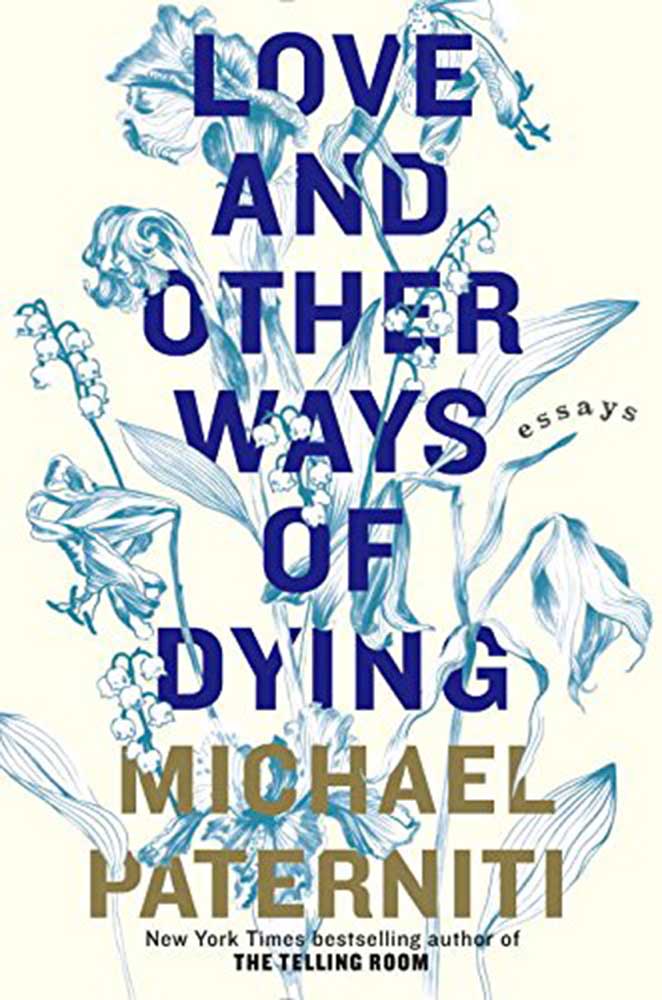Paterniti tells tales of love, dying and Einstein’s brain
Published 12:00 am Sunday, October 4, 2015

- "Love and Other Ways of Dying" by Michael Paterniti. (Photo courtesy Amazon/TNS)
“Love and Other Ways
of Dying”by Michael Paterniti (The Dial Press, 464 pages, $18.18)
Recently, Michael Paterniti’s editor called to say that his collection of essays, “Love and Other Ways of Dying,” had been nominated for a National Book Award.
When he heard the news, Paterniti was in his favorite coffee shop in Portland, Maine, where he lives with his wife and three children.
“It’s kind of hard to do the funky chicken dance,” the writer said. “You’re surrounded by everybody else with their heads down.”
Random House published the book earlier this year. Paterniti, 51, is also the author of “The Telling Room: A Tale of Love, Betrayal, Revenge and the World’s Greatest Piece of Cheese” and “Driving Mr. Albert: A Trip Across America With Einstein’s Brain.”
The eldest of four sons, Paterniti grew up in Darien, Connecticut. After graduating from Middlebury College at age 21, he took a job at the advertising firm Doyle Dane Bernbach in Manhattan.
“It almost killed me, having to wear a suit and tie and sit in a cubicle. That began to shorten my life. I could feel the blood slowing,” the author said in a telephone interview.
His task was to count the number of ads in magazines and compare that to the number of pages with editorial content. Then, he had to categorize the ads. He got behind in his work because he kept reading articles in The New Yorker and Vanity Fair.
“I lasted just a year and escaped to Cape Cod,” he said.
His journalism career began at The Harwich Oracle, where he covered town meetings and got to interview a 100-year-old woman who had 56 cats.
“I loved every second there. You went to every town meeting. You took every picture. You wrote every editorial. You would take your byline off half the articles so they would think other people worked there.”
Then he worked at The Cape Codder newspaper and enrolled in the writing program at the University of Michigan in Ann Arbor, where he earned a master’s degree in 1991.
As he grew up, his favorite storyteller was his maternal grandmother, Rose Ells.
One of the essays in his latest book recounts the experience of stopping a man from committing suicide by jumping off a bridge in Nanking, China. Another re-creates former French President Francois Mitterrand’s last meal in a rustic dining room in France. Paterniti’s other pieces examine the aftermath of a plane crash off the coast of Nova Scotia, an earthquake in Haiti and a tsunami in Japan.
Paterniti and his wife, who is also a published author, started The Telling Room, a nonprofit center for storytelling in Portland, Maine. The inspiration came from an experience he had while reporting in the Sudan.
“We were at a food drop. People were starving. They had to wait all night while the U.S. counted the bags that had been dropped. This chief of the Dinka tribe stood up” and sang until food was distributed. As the chief sang the entire story of the tribe and his village, Paterniti said, “the crowd around him got bigger and bigger.”
Many Sudanese and Somalian immigrants have settled in Portland.
“We were interested in creating a moment where they would tell their coming to America stories. We worked closely for a year with a bunch of kids who were learning English. We felt more connected to this community for having done it. Once you know your neighbor’s real story, you can’t help but feel invested in them,” Paterniti said.
Now, he said, The Telling Room has 10 employees and serves 2,500 children from ages 6 to 18 each year.






